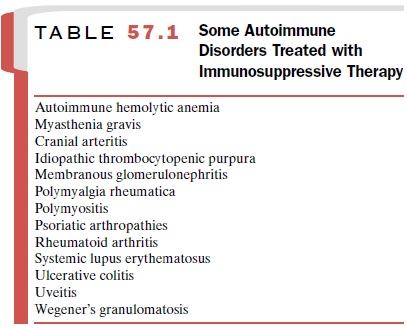Chapter: Modern Pharmacology with Clinical Applications: Immunomodulating Drugs
Autoimmune Diseases
AUTOIMMUNE
DISEASES
Cells from the body’s immune
system can on occasion react against normal endogenous proteins and thereby
effect a reaction against certain body tissues. This ab-normal immune response
is termed autoimmunity. Ordinarily, a
complex network of feedback loops keeps autoimmune reactions in check. However,
under certain circumstances, normal control is lost and the aberrant immune
reaction will result in disease.
Myasthenia gravis is an
example of an autoimmune disease in which antibodies are produced against the
acetylcholine receptors in the neuromuscular junction. The abnormal immune
response results in the break-down of junctional receptors, ultimately
rendering pa-tients weak and unable to move voluntary muscles. Rheumatoid
arthritis is another autoimmune disease in which antibodies are secreted
against a component of an individual’s own immune globulins. These
antibody–immune globulin conjugates (immune com-plexes) form precipitates in
the joints of affected indi-viduals. Phagocytic cells are in turn attracted to
these sites, where they release enzymes that destroy sur-rounding tissue
(inflammation). Immunosuppressive agents are often employed in debilitating
cases of au-toimmune disease to curb the production of autoanti-bodies.

A list of autoimmune diseases
for which immuno-suppressive therapy is commonly used can be found in Table
57.1.
Related Topics